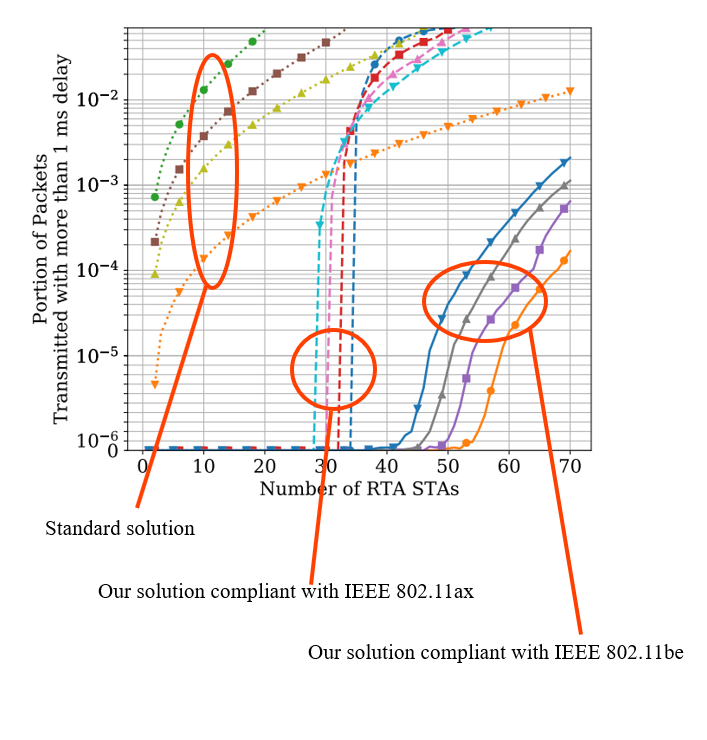Massive RTA (joint work with Telecommunication systems Lab, NRU HSE)
Computer and telecommunication technologies develop quickly and have given rise to various Real-Time Applications (RTAs), such as remote control, online gaming, virtual and augmented reality. These applications have very strict Quality of Service (QoS) requirements. They often require to delay no more than 1-10 milliseconds, and reliability of service no less than 99.999%.
In WNL, researchers are studying different approaches to support RTA with their strict QoS requirements in Wi-Fi networks, since Wi-Fi is one of the most widespread wireless data transmission technologies. The RTA support in Wi-Fi is a non-trivial problem, because Wi-Fi operates in unlicensed frequency bands which, on one hand, provide easy deployment of Wi-Fi networks, but on the other hand make such networks suffer from interference caused by other networks.
WNL has proposed a solution for RTA support in Wi-Fi, which is based on the new functionality, introduced in the new amendment to the Wi-Fi standard: IEEE 802.11ax. This amendment adds simultaneous multiuser uplink transmissions with orthogonal frequency division multiple access (OFDMA), which enables a Wi-Fi access point to divide the available frequency band into resource units and to assign them either to specific devices for deterministic transmission or to all devices for random access transmission. Deterministic transmissions are relatively protected from the interference, but their establishment requires the access point to know which specific devices need resources. However, it takes time for a device to inform the access point about the required resources, but RTA service cannot afford such additional delays.

WNL has designed algorithms that combine the usage of random and deterministic access to allocate the resource units to devices in such a way that the RTA devices can transmit their data with a delay less than 1 ms, and the probability that they do not obtain the required service is less than 10-5. These algorithms use the random access when the network is slightly loaded, and use deterministic access when multiple devices try to send their data. Moreover, WNL members have presented the solution in the IEEE 802 LAN/MAN standardization committee and have proposed a modification to the standard OFDMA procedure that can sufficiently improve the efficiency of Wi-Fi for the RTA service. This modification can be added to Wi-Fi in its next generation, IEEE 802.11be. With the aforementioned solution, when a Wi-Fi access point does not know which specific devices need resources, it can split the devices into groups and allocate the resource units to every group and thus use the resources more efficiently. The usage of this solution allows an access point to serve tens of devices that generate data frames in random instants of time, and also leaves big amounts of channel resources intact, so that they can be used by other, non-RTA devices.
